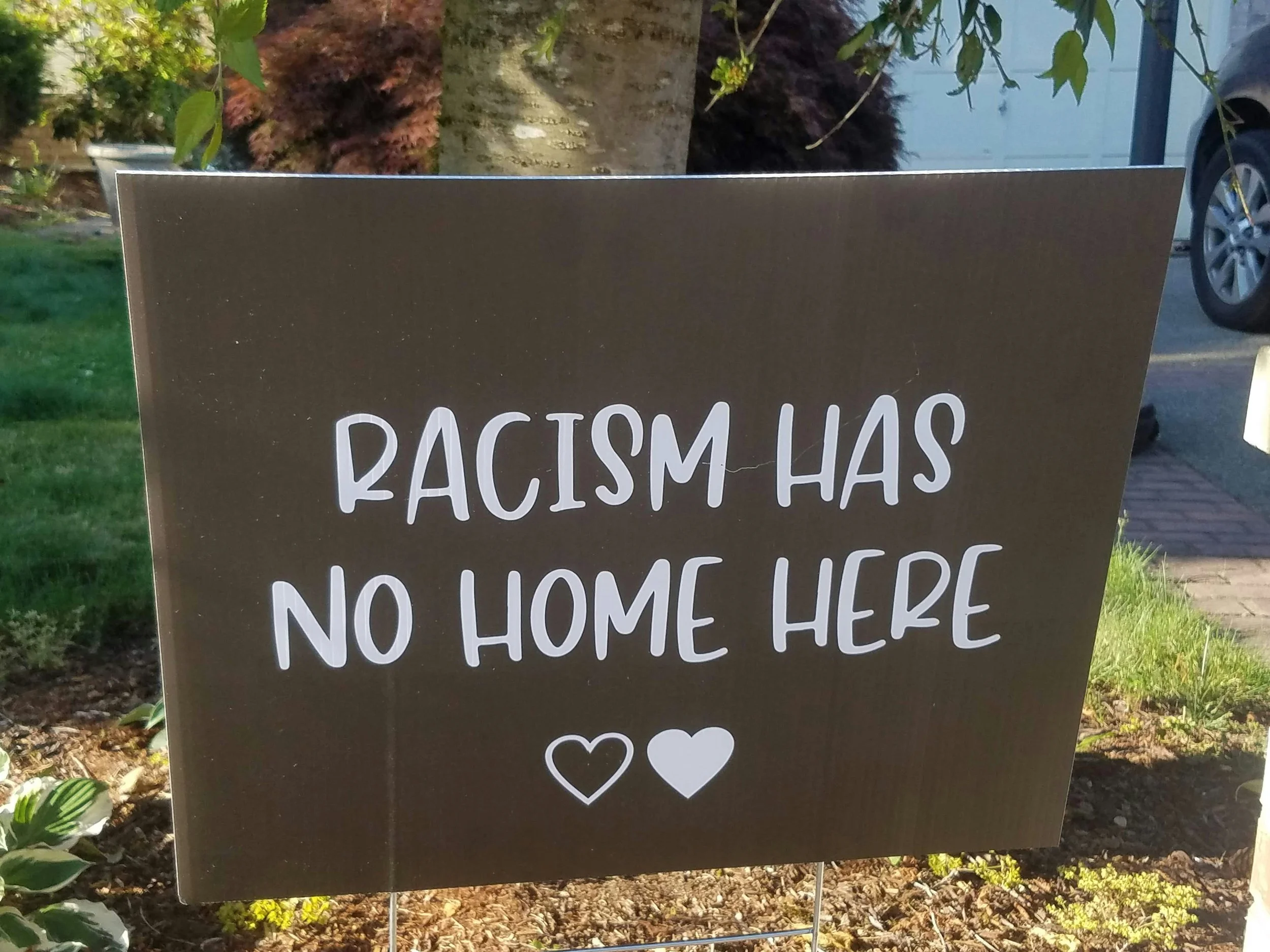When did we stop seeing each other?
A simple but powerful reminder that equality begins at home, and that every space should be one of safety, dignity, and belonging.
I’ve been struggling to find words this week and last. Like so many others, I saw the released footage read the headlines about a mother, a woman simply living her life, being attacked and racially abused. I felt sick. Not just because of the brutality of it, but because it’s 2025, and we’re still here. Still explaining why racism isn’t a “thing of the past.” Still begging for humanity.
It’s hard to describe the sadness that sits with me. I walk my dog every morning around Lambeth, the borough I love, and lately I find myself looking over my shoulder a little more. I wonder who’s watching. I wonder who’s judging. And that’s not paranoia, that’s the quiet, exhausting vigilance that so many people of colour have lived with for generations.
But what frightens me most isn’t just the attacks themselves, it’s the climate that’s allowing them to happen. The casual acceptance. The silence. The comments that follow: “It’s complicated.” “We don’t know the full story.” We do know. We know enough. We know that hate doesn’t just appear out of nowhere. It’s nurtured, drip-fed through fear, misinformation, and division.
What we’re seeing across the country right now isn’t just racism, it’s the result of years of leadership failure. A failure to bring people together. A failure to tell the truth about why our communities are struggling. Because it’s easier, politically convenient even, to make us blame each other than to confront the systems that keep us unequal.
Let’s be honest: race has become the perfect distraction. While people in power continue to hoard wealth, strip away public services, and pit working people against one another, we’re made to fight over scraps, over who belongs, who deserves, who gets to feel safe. Class and race have been weaponised as smoke and mirrors. It’s cruel. And it’s working.
As a South Asian woman, and someone who has dedicated her life to working with young people, this breaks me. Because our children and young people are watching. They’re learning from what we allow. They’re seeing adults shout, fight, dehumanise, and we wonder why anxiety and hopelessness are rising in our schools.
At You Be You, we see every day what happens when young people are given space to be honest about how the world makes them feel, angry, scared, invisible. And we see what happens when they’re given the tools to lead, to listen, and to care. They create change. Real, lasting, human change. Because they understand something we seem to have forgotten: that community isn’t built through power, it’s built through empathy.
So I keep asking myself: how do we get back to community?
How do we get back to seeing one another, not as enemies, not as statistics, not as “others”, but as neighbours?
We start small. We start by showing up for each other again. By saying hello on the street. By challenging hate when we hear it, even when it’s uncomfortable. By calling out leaders who profit from division and reminding them that their job is to protect, not provoke. By demanding a politics that heals instead of harms.
I don’t have all the answers. But I know this: until we face the truth, that racism is not a side issue but the beating heart of inequality, we will keep repeating this pain.
To the mother who was attacked, to every person who has ever been made to feel unsafe because of the colour of their skin: I see you. We see you. You matter.
And to the rest of us: we have a choice. We can keep scrolling and shaking our heads, or we can start rebuilding the thing they keep trying to take from us, our shared humanity.
Because no policy, no headline, no hate can erase that if we hold on to it together.

